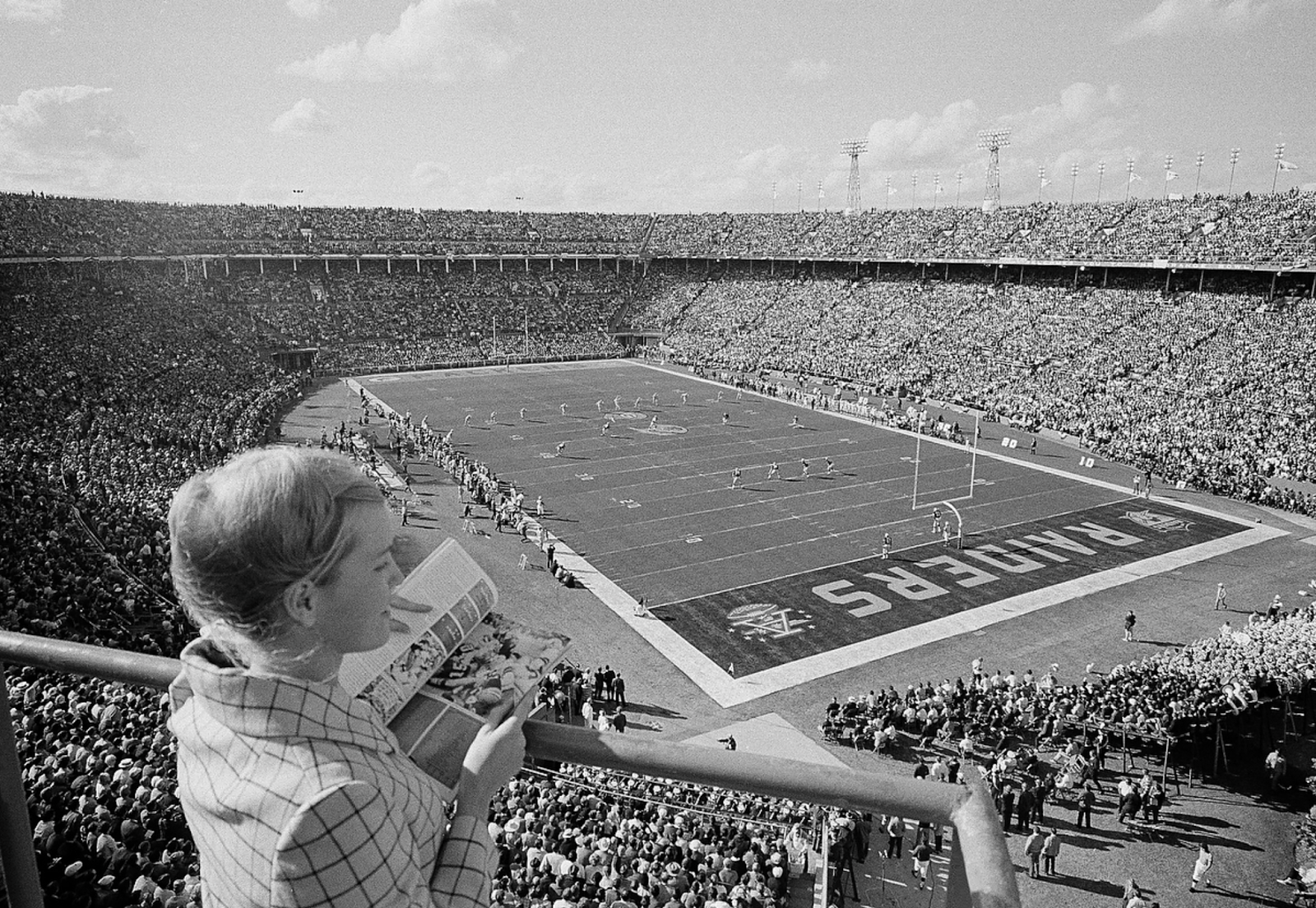
Alright, listen up, football fanatics and nostalgia-lovers! Remember the 2000s? That glorious decade of pop culture, groundbreaking tech, and some truly unforgettable moments on the gridiron? We’re talking about an era when quarterbacks weren’t just players; they were the absolute commanders of the field, leading their teams on epic playoff runs that kept us on the edge of our seats. But what truly makes a quarterback a “commander”? What qualities define the “best” of the best when the stakes are highest, especially in the crucible of the NFL playoffs?
Today, we’re not just reminiscing about one decade. We’re taking a thrilling, fast-paced journey through time to celebrate 12 quarterbacks and the incredible teams they led, showcasing how they dominated the playoff landscape across various eras. While the 2000s certainly gifted us some legendary figures, the journey to becoming an ultimate field general is a timeless saga. We’ll explore the very essence of what it means to be ‘best’ – not just in terms of wins and losses, though those are pretty important, but in the ‘highest quality’ of leadership, the ‘most excellent’ strategic execution, and the ‘most suitable’ approach to high-pressure situations, as the very definition of ‘best’ suggests.
From the earliest days of the NFL playoffs, which kicked off officially in 1933 with a thrilling Championship Game between the Chicago Bears and New York Giants, to more recent historic runs, the role of the starting quarterback has been paramount. They are credited with the wins or losses, even if they faced mid-game challenges. This tradition of recognizing the primary passer ensures that the legacy of these field generals, who often showcased their ‘highest degree of ability, effort, or health,’ endures. So, buckle up, because we’re about to delve into the careers and championship runs of some of the game’s most iconic, even if sometimes unnamed, playoff heroes, starting with a true legend who set the bar incredibly high!

1. **Otto Graham and the Browns’ Unstoppable Dynasty (1940s-1950s)**When we talk about quarterbacks who were “absolute commanders of the field and the playoff run,” we absolutely have to start with Otto Graham. The context explicitly mentions him, noting that “this adds four championships to Otto Graham’s total.” His record with the Browns is simply mind-boggling, securing AAFC championships in 1946, 1947, 1948, and 1949, followed by NFL championships in 1950, 1954, and 1955. That’s a staggering seven total championships, a testament to a career defined by unparalleled excellence.
Otto Graham truly embodied what it means to be the “best,” a term the dictionary defines as “of the highest quality; the most excellent.” His sustained success across two different leagues during his playing years wasn’t just good; it was historically exceptional. He wasn’t merely participating in playoff runs; he was orchestrating dynasties, consistently proving to be the “most suitable or appropriate” leader for his team in the most critical moments, leading them to victory after victory with apparent ease.
His command wasn’t just about throwing passes; it was about elevating his entire team. The definition of ‘best’ also includes being “of most benefit or of greatest advantage,” and Graham certainly was that for the Browns. He was the linchpin, the ultimate advantage that kept them at the pinnacle of professional football for over a decade. Imagine the pressure, the constant expectation to perform at the highest level, and then delivering it year after year – that’s the mark of a true commander who truly knew how to play “well” in every sense of the word, “most excellently or suitably.”

2. **The Quarterback for the Giants’ Early Triumphs (1930s)**Moving back in time to the very genesis of the NFL playoff system, we encounter the quarterback who led the Giants to their early championships in 1934 and 1938. While the specific player isn’t explicitly named in our context, their achievement marks a pivotal moment in NFL history, demonstrating command in an era where the game itself was still evolving. This quarterback truly exemplified the “highest degree of ability” necessary to navigate the burgeoning playoff landscape.
This early era of professional football was rugged, demanding, and full of innovation, with offenses not always employing a quarterback in the modern sense of the position, yet they still had “primary passers” credited with leading their teams. The quarterback for the Giants during these foundational championship years showcased an inherent ability to be “most excellent” under pressure. Their leadership on the field ensured their team was always positioned for success, embodying the core of what it means to be a field general.
Winning multiple championships in those initial years established a legacy of dominance for the Giants. It required a quarterback who was “most suitable” for the challenge, capable of making “good” judgments and executing plays “well.” The achievements of this unnamed but highly significant player set a precedent for what a commanding quarterback could achieve, even as the league was finding its footing. Their success highlights the timeless nature of quarterback excellence in the playoffs, showing that the quest to be the “best” began almost immediately.
3. **The Quarterback for the Bears’ Wartime Dominance (1940s)**As we advance into the 1940s, the Chicago Bears emerged as a formidable force, clinching championships in 1940, 1941, 1943, and 1946. This remarkable run, guided by their influential quarterback, speaks volumes about their command of the game during a tumultuous period. The context acknowledges that even in these early years, players like Sid Luckman, though not explicitly named for this specific entry, were recognized as “primary passers,” allowing them to “maintain credit for their team’s playoff records” – a clear indication of their central role.
This quarterback’s ability to consistently lead the Bears to multiple titles demonstrated an unwavering commitment to achieving the “highest quality” of play. They orchestrated an offense that was “most excellent,” adapting to changing circumstances and always finding a way to get the “better of” their opponents, a true hallmark of a commanding presence. Their ability to deliver victories showcased a “highest degree of ability, effort, or health” that propelled the team to greatness.
Leading a team to four championships within a single decade requires not just skill, but immense fortitude and strategic acumen. This quarterback was, by any measure, “most suitable or appropriate” for the immense responsibility. They consistently proved to be “good” under pressure, ensuring the Bears remained at the top of the NFL. Their playoff performances were undeniably “well handled,” characterized by thorough and careful execution that left no doubt about their command.

4. **The Quarterback for the Packers’ Golden Era (1960s)**The Green Bay Packers of the 1960s represent one of the most iconic dynasties in NFL history, largely thanks to the phenomenal leadership of their quarterback. With championships in 1961, 1962, 1965, 1966, and 1967, including two Super Bowl victories (1966 and 1967), this era showcases unparalleled excellence. This quarterback’s command was not just fleeting; it was a sustained masterclass in how to win when it mattered “best.”
This period truly defines what it means to be “best” – “in or to the highest degree” and “most fully.” The Packers’ quarterback was a master of the playoff stage, demonstrating an ability to perform “most excellently or suitably” game after game. Their success wasn’t a fluke; it was the result of a meticulously executed game plan and the sheer will to win, continually proving that they could “best” any challenger.
The consecutive nature of some of these championships, particularly the back-to-back Super Bowl wins, underscores a level of command that few have matched. It signifies a quarterback who could maintain a “good” and “satisfactory” performance level under extreme pressure, showing “highest degree of ability, effort, or health.” This era of Packers football, under their quarterback’s guidance, perfectly illustrates a field general operating at their peak, making them truly one of the all-time “best” in playoff history.

5. **The Quarterback for the Colts’ Enduring Impact (1950s-1970)**The Colts’ championship runs in 1958, 1959, and then a Super Bowl victory in 1970, highlight a quarterback whose impact spanned multiple eras. This kind of longevity and sustained excellence points to a player who was not just great in one specific window, but someone who consistently adapted and performed at a “satisfactory or excellent in quality” level over a significant period. This quarterback’s ability to remain a “commander of the field” for so long is truly something to celebrate.
Achieving championships over a twelve-year span is a testament to an enduring level of skill and leadership, demonstrating what it means to be “good” and “dependable” for a prolonged period. This quarterback was clearly “most advantageous” for their team, providing the consistency and strategic insight required to compete for titles across different generations of players and coaching schemes. They were a consistent source of “benefit” and “advantage” for the Colts.
Their ability to secure victories in different competitive landscapes underscores a versatile command that was “most excellent.” The 1970 Super Bowl win, coming a decade after their initial NFL championships, particularly highlights an impressive adaptability. This quarterback’s career illustrates how a true “best” performer can maintain a “highest degree of ability, effort, or health” over time, continuing to lead their team to glory when it matters “most excellently.”

6. **The Quarterback for the Patriots’ Early 2000s Breakthrough (2001, 2003, 2004)**Okay, 2000s fans, this one’s for you! While our list spans various decades, the quarterback for the Patriots during their incredible championship run in 2001, 2003, and 2004 truly defines what it meant to be a “commander of the field” in the early part of the new millennium. This era marked a significant shift in the NFL, and their quarterback was right at the forefront, establishing a new paradigm of playoff dominance.
These early 2000s championships were a clear demonstration of a quarterback operating at the “highest quality” and providing the “most benefit or greatest advantage” to their team. The Patriots’ quarterback was undeniably “most suitable or appropriate” for the big moments, delivering clutch performances that cemented their place in history. Their consistent ability to perform “most excellently or suitably” under immense pressure became a defining characteristic of this legendary period.
To win three championships in four years, especially in a league as competitive as the NFL, requires an extraordinary level of command, skill, and resilience. This quarterback exhibited a “highest degree of ability, effort, or health” that allowed them to consistently “get the better of” their opponents. Their leadership during these thrilling playoff runs made them one of the undisputed “best” of their time, perfectly illustrating what it means to be an “absolute commander of the field” in the 2000s.
Okay, hold onto your helmets because we’re not done celebrating the gridiron legends who absolutely commanded the field when it mattered most! We’ve journeyed through some truly iconic eras, but the story of ultimate quarterback dominance continues. Get ready to dive into even more thrilling playoff runs and discover how these next commanders etched their names into football history, continually proving they were the ‘best’ of the ‘best’ in the most exciting way possible!
7. **The Quarterback for the Steelers’ Unrivaled ‘Steel Curtain’ Era (1970s)**Talk about a dynasty! The Pittsburgh Steelers of the 1970s weren’t just a team; they were a force of nature, and at the heart of it all was their commanding quarterback. With four Super Bowl victories in a six-year span – 1974, 1975, 1978, and 1979 – this era solidified the Steelers as one of the most dominant franchises ever. This quarterback truly embodied what it meant to have the ‘highest degree of ability, effort, or health’ when the stakes were astronomical.
Leading a team through multiple Super Bowl runs demands an almost superhuman level of composure and skill. This quarterback consistently demonstrated a strategic prowess that was ‘most excellent,’ orchestrating drives and making critical decisions that put the Steelers in the ‘best’ position to win. They weren’t just participating; they were dictating the flow of the game, ensuring their team remained ‘good’ and ‘dependable’ under the bright lights of championship football.
This quarterback’s leadership during the ‘Steel Curtain’ era cemented their legacy as an ‘absolute commander of the field.’ They had an uncanny ability to ‘get the better of’ even the toughest opponents, consistently delivering performances that were ‘most excellently or suitably’ executed. Their four championships are a testament to a quarterback operating at their absolute peak, showing everyone exactly how it’s done when ultimate victory is on the line.

8. **The Quarterback for the 49ers’ West Coast Wonders (1980s)**Oh, the 80s! If you were watching football then, you know the San Francisco 49ers were simply magic, and it was all thanks to their visionary quarterback. Talk about a string of triumphs! Their Super Bowl wins in 1981, 1984, 1988, and 1989 weren’t just wins; they were masterclasses in strategic football, showcasing a quarterback who was truly ‘of the highest quality’ and set new standards for offensive execution.
This quarterback was the embodiment of ‘most suitable or appropriate’ for the innovative West Coast offense, executing plays with a precision that was ‘most excellent.’ Their ability to dissect defenses and deliver passes with surgical accuracy consistently provided the ‘most benefit or greatest advantage’ to the 49ers. They made winning look like an art form, always performing ‘well’ and ‘satisfactorily’ under intense pressure.
What truly makes this quarterback stand out as a ‘commander of the field’ is their unwavering ability to perform at their ‘highest degree of ability, effort, or health’ in the biggest games. To secure four Super Bowl championships, especially with such stylistic flair, confirms their place among the ‘best’ of the ‘best.’ They didn’t just win; they revolutionized the game, proving that consistent excellence truly defines a playoff general.

9. **The Quarterback for the Dallas Texans/Chiefs’ AFL Dominance and Super Bowl Triumph (1960s)**Before the Chiefs became the powerhouse they are today, their journey to greatness began in the AFL, led by a quarterback who truly knew how to command. With AFL championships in 1962, 1966, and then a monumental Super Bowl IV victory in 1969, this quarterback demonstrated an impressive ability to lead a team to victory across leagues and eras. This player was ‘most suitable or appropriate’ for the grand stage, proving their mettle against the toughest competition.
This quarterback’s success wasn’t just about winning titles; it was about elevating a franchise. Their ability to lead the Dallas Texans to an AFL title and then transition that dominance into a Super Bowl victory as the Kansas City Chiefs showcases a rare form of adaptability and leadership that was ‘most excellent.’ They consistently provided ‘most benefit or greatest advantage’ to their team, becoming the ultimate difference-maker in crucial playoff matchups.
To be a ‘commander of the field’ in two different incarnations of the team (Dallas Texans and Kansas City Chiefs) and to conquer both the AFL and then the NFL in the Super Bowl is an extraordinary feat. This quarterback showed a ‘highest degree of ability, effort, or health’ that allowed them to ‘get the better of’ their opponents time and again. Their championships prove they were unequivocally one of the ‘best’ leaders on the field, capable of executing ‘most excellently or suitably’ when it counted most.

10. **The Quarterback for the Cowboys’ 1990s Super Team (1992, 1993, 1995)**Okay, 90s kids, you know who we’re talking about! The Dallas Cowboys of the early to mid-90s were an absolute spectacle, and their dynamic quarterback was the ringleader of that show. Clinching three Super Bowl titles in four years – 1992, 1993, and 1995 – this era of Cowboys football was defined by a quarterback who was ‘of the highest quality’ and whose leadership was simply undeniable. Talk about a winning machine!
This quarterback wasn’t just a passer; they were the strategic mastermind behind an unstoppable offense. Their ability to execute flawlessly under pressure and make game-winning plays consistently proved to be the ‘most advantageous’ factor for the Cowboys. They were undeniably ‘most suitable or appropriate’ for leading such a star-studded team, bringing out the ‘best’ in everyone around them and ensuring ‘good’ and ‘satisfactory’ results.
Winning three Super Bowls in such a short period is a clear indicator of a quarterback who possessed a ‘highest degree of ability, effort, or health’ and an unyielding will to win. This field general consistently demonstrated how to ‘best’ their opponents, game after game, cementing their place as one of the ‘best-known’ and most impactful commanders in NFL playoff history. They truly owned the 90s, and we loved every minute of it!

11. **The Quarterback for the Buccaneers’ 2020 Super Bowl Run (2020)**Remember the buzz, the excitement, the sheer disbelief that swept the football world in 2020? The Tampa Bay Buccaneers, led by their legendary quarterback, delivered an unforgettable Super Bowl victory in 2020! This wasn’t just another win; it was a masterclass in leadership, illustrating how an experienced commander could instantly transform a team and guide them to the ultimate prize. This quarterback was the epitome of providing the ‘most benefit or greatest advantage’ to a franchise.
Bringing a new level of command to a team, this quarterback showcased an incredible ability to elevate an entire roster, proving they were ‘most suitable or appropriate’ to lead a championship charge. Their strategic brilliance and calm under pressure were ‘most excellent,’ turning what many thought was a long shot into a dominant playoff run. They truly demonstrated how to make the ‘best’ of a new situation and thrive.
This single Super Bowl victory with the Buccaneers in 2020 is a powerful testament to a quarterback’s enduring ‘highest degree of ability, effort, or health.’ It highlights a player who continually adapted, refined their game, and led with an intensity that was ‘most excellently or suitably’ displayed on the grandest stage. This iconic run solidified their status as one of the ‘best’ quarterbacks to ever command a team to playoff glory, proving age is just a number when you’ve got that kind of drive!
Read more about: The Unforgettable Moments That Etched Tom Brady’s GOAT Status in NFL History
12. **Patrick Mahomes and the Chiefs’ Modern Dynasty (2019, 2022, 2023)**Alright, let’s fast forward to today and talk about the electrifying, game-changing phenomenon that is Patrick Mahomes! This guy isn’t just a quarterback; he’s a wizard, a maestro, and undoubtedly one of the ‘best’ commanders the NFL has ever seen. With Super Bowl victories in 2019, 2022, and 2023, he’s already built a modern dynasty that has us all on the edge of our seats, wondering what incredible feat he’ll pull off next!
Mahomes embodies ‘highest quality’ quarterback play, consistently delivering ‘most excellent’ performances that seem to defy logic. His innovative playmaking, incredible arm talent, and clutch execution make him ‘most suitable or appropriate’ for any high-pressure playoff scenario. He’s not just playing the game; he’s redefining it, constantly providing the ‘most benefit or greatest advantage’ to the Kansas City Chiefs.
His rapid ascent to multiple championships proves he operates at the ‘highest degree of ability, effort, or health,’ making him a truly ‘good’ and ‘satisfactory’ leader for his team. Patrick Mahomes has already ‘bested’ countless opponents and, at a relatively young age, is setting a new standard for what it means to be an ‘absolute commander of the field’ in the modern NFL. Get ready, because this is just the beginning of what promises to be one of the ‘best-known’ and most exciting legacies in football history!
Phew! What an incredible journey through the annals of quarterback greatness! From the foundational legends who pioneered playoff dominance to the modern marvels rewriting the record books, these 12 quarterbacks share one undeniable trait: they were, and are, the absolute commanders of the field. They didn’t just play the game; they shaped it, redefined it, and, most importantly, led their teams to glory with an unmatched blend of skill, strategy, and sheer will to win. Each one, in their own era, proved to be the ‘best’—of the highest quality, most excellent, and most suitable to lead their teams on those unforgettable playoff runs. So, next time you’re debating who the greatest is, just remember these 12 titans who truly owned the postseason stage!


